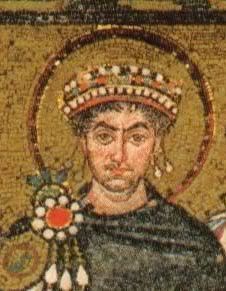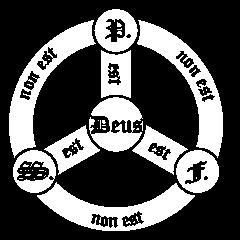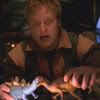Post by dinadan on Feb 19, 2005 0:23:23 GMT -5
Admittedly, my knowledge of childhood comes only from first-hand experience (which may, I admit have been atypical) and from Psych 101. However, one of the first things we learned in Psych 101 is that children...and, when I say children, I'm going to be specific and say "children old enough to read Harry Potter books" (which I'd say 8 is a nice age to approximate since the first book appears on the third grade reader list here in Lexington's public schools)...children at 8 years old have enough cognitive development to understand the differences between fantasy and reality, unless (1) they have a mental deficiency OR (2) they have been improperly socialized. I mean, yes, if you were to raise a child for 8 years to believe that the irrational and the absurd were gospel, then yes, you might have a problem. However, in our society, even a child raised on TV (sex and violence) would (I would bet) under most circumstances not believe that magic (of the absurd kind found in Harry Potter) really worked.
Plus, there are plenty of other children's books out there with heros that work magic--plenty of Lloyd Alexander's books, and Madeline L'Engle has a few too (I think, I could be mistaken on that since I haven't read any of her books since I was about 10). Both of these authors won Newberry awards for some of their fantasy--but the charges of leading children down the Left-Hand Path don't get levelled at them. I wonder why that is? My guess is that unlike Harry Potter, which hit the market at just the right time to excite a generation literally starved of imaginative literature, Alexander and L'Engle's books were never media-firestorms. As such, they never drew close scrutiny from the Moral Majority, and thus escaped the book burning fate of HP. That is, however, only speculation.
Now, as to the anecdote of your wife in the library; I do not know the policy of public libraries where you live, but I used to work as a volunteer in high school, and we had strict policies about things like the Satanic Bible, books with sexually explicit passages/imagery, witchcraft/satanism/new age books, and things that were considered "mature reading." You could not check these out unless you were 13 (18 for sexually explicits). Now, you may argue that 13 is too young for reading these kinds of things, and that's fine--but 13 year olds are even more cognitively developed than 8 year olds, so for the purpose of my argument, I'll do a little Socratic hand-waving and say, "moving on..."
As to Rowling's sneaky use of Latin...well, for the most part (having had some classical latin), the Latin she uses is either simple words and phrases (like "lumos" for light), or else nonsense words that sound like latin (like "avada kedavra" for the killing curse...although, I think this is meant to be more of a pun with "abracadabra" and the English word cadaver). AND, speaking as someone who really loves classical things, what is the harm if it incites some kids to want to learn Latin. If, say, my little brother read the HP books, wanted to learn Latin to understand the "spells," then, with his new found knowledged discovered that most of it was nonsense, I'd still be pleased because he gained a knowledge of Latin.
If you're afraid of kids reading books on "real" magic...well, frankly, I just don't see it happening. I mean, most of the stuff they'll find in your average public library is is fluff paganism; it's endangering to the soul, yes, but it's not like they're reading the Lesser Key of Solomon or the Crowley's Liber Viarvm Viae--not that I've ever seen a public library that stocked such things--which could teach them real goetia. And, most of the teens that I've known who went in for fluff paganism eventually grew bored with it; of my friends that were interested in such things (and, btw, we were all in high school before HP came out, so you can't blame our interest in the occult on Rowling), only I went on to further study magick and the occult. And, strangely enough, my experiences brought me back to Christianity fuller and closer than I had ever been; I truly believe now. I realize that may not be a common experience; I also don't think your average 8 year old reading Hary Potter is going to go out and look for Golden Dawn and OTO manuscripts.
Yes, kids do want to emulate their heroes; but I think what most kids end up taking away from HP is the sense of "doing the right thing" rather than "learn magic and do stuff with it." Only the evil characters in HP want to show off their mastery of magic--that's not something good, courageous, Gryffindor's do. Now, if we have children that would rather be the villain than the hero--well, that's contra your arguement, and speaks to a much larger problem than letting kids read HP books; it says that we've raised a generation of kids to think that good guys finish last, and being evil is cool. That's a totally different kettle of fish--and you can't lay the blame for that at Rowling's door.
It's ok for raising up the older topic; frankly, this is far more interesting than future-casting the books. Also, if this seems somewhat antagonistic, I apologize--it's not meant that way at all. It's "arguement" in the purely philosophic use of the world--maybe "constructive dialog" would be better. At any rate, I enjoy the debate, so please let's continue--and, of course, I hope other people on the board will jump in.
Plus, there are plenty of other children's books out there with heros that work magic--plenty of Lloyd Alexander's books, and Madeline L'Engle has a few too (I think, I could be mistaken on that since I haven't read any of her books since I was about 10). Both of these authors won Newberry awards for some of their fantasy--but the charges of leading children down the Left-Hand Path don't get levelled at them. I wonder why that is? My guess is that unlike Harry Potter, which hit the market at just the right time to excite a generation literally starved of imaginative literature, Alexander and L'Engle's books were never media-firestorms. As such, they never drew close scrutiny from the Moral Majority, and thus escaped the book burning fate of HP. That is, however, only speculation.
Now, as to the anecdote of your wife in the library; I do not know the policy of public libraries where you live, but I used to work as a volunteer in high school, and we had strict policies about things like the Satanic Bible, books with sexually explicit passages/imagery, witchcraft/satanism/new age books, and things that were considered "mature reading." You could not check these out unless you were 13 (18 for sexually explicits). Now, you may argue that 13 is too young for reading these kinds of things, and that's fine--but 13 year olds are even more cognitively developed than 8 year olds, so for the purpose of my argument, I'll do a little Socratic hand-waving and say, "moving on..."
As to Rowling's sneaky use of Latin...well, for the most part (having had some classical latin), the Latin she uses is either simple words and phrases (like "lumos" for light), or else nonsense words that sound like latin (like "avada kedavra" for the killing curse...although, I think this is meant to be more of a pun with "abracadabra" and the English word cadaver). AND, speaking as someone who really loves classical things, what is the harm if it incites some kids to want to learn Latin. If, say, my little brother read the HP books, wanted to learn Latin to understand the "spells," then, with his new found knowledged discovered that most of it was nonsense, I'd still be pleased because he gained a knowledge of Latin.
If you're afraid of kids reading books on "real" magic...well, frankly, I just don't see it happening. I mean, most of the stuff they'll find in your average public library is is fluff paganism; it's endangering to the soul, yes, but it's not like they're reading the Lesser Key of Solomon or the Crowley's Liber Viarvm Viae--not that I've ever seen a public library that stocked such things--which could teach them real goetia. And, most of the teens that I've known who went in for fluff paganism eventually grew bored with it; of my friends that were interested in such things (and, btw, we were all in high school before HP came out, so you can't blame our interest in the occult on Rowling), only I went on to further study magick and the occult. And, strangely enough, my experiences brought me back to Christianity fuller and closer than I had ever been; I truly believe now. I realize that may not be a common experience; I also don't think your average 8 year old reading Hary Potter is going to go out and look for Golden Dawn and OTO manuscripts.
Yes, kids do want to emulate their heroes; but I think what most kids end up taking away from HP is the sense of "doing the right thing" rather than "learn magic and do stuff with it." Only the evil characters in HP want to show off their mastery of magic--that's not something good, courageous, Gryffindor's do. Now, if we have children that would rather be the villain than the hero--well, that's contra your arguement, and speaks to a much larger problem than letting kids read HP books; it says that we've raised a generation of kids to think that good guys finish last, and being evil is cool. That's a totally different kettle of fish--and you can't lay the blame for that at Rowling's door.
It's ok for raising up the older topic; frankly, this is far more interesting than future-casting the books. Also, if this seems somewhat antagonistic, I apologize--it's not meant that way at all. It's "arguement" in the purely philosophic use of the world--maybe "constructive dialog" would be better. At any rate, I enjoy the debate, so please let's continue--and, of course, I hope other people on the board will jump in.










